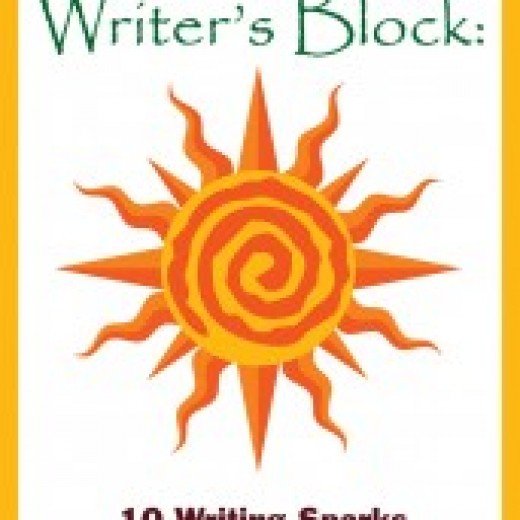Finding Your Character’s Motivation by Kay Keppler
 Let’s welcome back monthly columnist, editor, and novelist, Kay Keppler, as she shares with us “Finding Your Character’s Motivation.” Enjoy!
Let’s welcome back monthly columnist, editor, and novelist, Kay Keppler, as she shares with us “Finding Your Character’s Motivation.” Enjoy!
***
When you develop your characters, you want them to be consistent so that readers can understand and perhaps identify with them. Your characters’ actions don’t have to be smart, but they must be done for a reason.
Knowing what motivates your characters helps you decide what they’ll do in any given situation and why, which makes your characters more believable and your story more engaging.
Layers of Motivation
Donald Maass says that there are layers of motivation the immediate, the rational, the deeply psychological, the genetic, and the ideal.
- Immediate motives are imposed on a character by plot circumstances (because of that, you must do this). These motives live on the surface. They are the least compelling, because readers are not in that situation.
- Rational motives explain why a character should do this or that. These reasons are good, smart, selfish, or petty. They might not sound rational, but they are how a character rationalizes what they do.
- Deeply psychological motives drive a character to act a certain way in a given situation and not act in any other way. These motives are born in back story and spring from what has hurt a character—unmet needs, unresolved conflicts, or the need to slay an inner monster or prove oneself.
- Genetic motives speak to a character’s disposition and emotional makeup. They explain how characters vote, make moral “judgments,” choose paintings, dress from Brooks Brothers or Forever 21, and handle conflict.
- Ideal motives are why characters can, finally, to do the right or selfless thing. These motives emerge only when characters mature, fail, have catharsis, awaken, or in any other way grow up.
Maass says that if a character exhibits only one motive, that character remains one-dimensional. Characters become real when multiple motives conflict with each other.
How can you know if your characters have fully developed and multiple motivations? These three exercises from editor Jim Dempsey can be a fun way to help you discover what makes your characters tick.
-
The opposite job
What job does your character have? Is s/he a good fit for it? The New York Times developed a tool that tells you what your “opposite job” is—the job that uses skills the exact opposite of what job you’re in. Just type in an occupation, and the tool tells you what skills you need to do it (as determined by the U.S. Labor Department)—and what the opposite job is, based on those required skills.
The opposite of a writer, for example, is a mobile home installer.
One skill for writers that’s used most often is creative thinking, for example, while mobile home installers need to be able to coordinate the work and activities of others, which writers almost never do.
The opposite job of a musician is a physicist. The opposite job of a news editor is a model. And so on.
Once you have your character’s opposite job, you can think about why they decided to become an historian or a mathematician and not a lumberjack or mine shuttle car operator (the opposite job).
Thinking about what decisions your characters could have made that would have led them to the opposite job will help you see why they made the decisions they did and ended up where they are now.
-
The eulogy
Imagine that your main character has died. Picture the funeral and the people who would attend. No one knows this character better than you, so you have to deliver the eulogy. What will you say?
The eulogy is a chance to bring that character to life for the mourners. Would you say something about their family? Their work? Friends? Which friends? Why was each important? What did the character achieve in life? Did s/he have a driving hobby, passion, charity, or cause?
Think about this character’s path in life and what they valued most. That tells you who and what is most important to your character and motivates their choices.
-
What if…
At some point, everyone wonders what might have happened if: if we’d won the lottery, turned left instead of right, taken that bus that crashed, married our childhood sweetheart, moved to Mexico. Where would we be now? Ask that of your characters.
The answer reveals what’s important to the character. If s/he won the lottery and used the money to go back to school, then perhaps the chance for a better job is most important. If s/he buys a bigger house, maybe keeping up with the Joneses is most important.
Dig Deep for Motivation
These exercises might help you see what action your character would take in a certain situation, and why. Try them before you begin writing, or whenever you’re stuck to discover what truly motivates your character.
***
ABOUT THE AUTHOR
Kay Keppler is an author Zero Gravity Outcasts, Betting on Hope, Gargoyle: Three Enchanting Romance Novellas, and editor of fiction and nonfiction –Angel’s Kiss and Outsource It!
is an author Zero Gravity Outcasts, Betting on Hope, Gargoyle: Three Enchanting Romance Novellas, and editor of fiction and nonfiction –Angel’s Kiss and Outsource It!
She lives in northern California. Contact her here at Writer’s Fun Zone in the comments below, or at kaykeppler@yahoo.com to ask questions, suggest topics, or if you prefer, complain.






